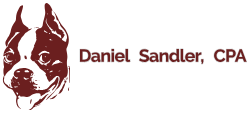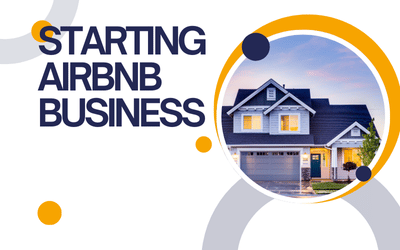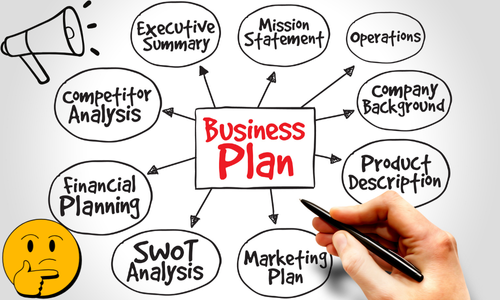Managing expenses is essential for financial stability and profitability in business. Among the various expenditures enterprises incur, billable expenses are a specific category that requires careful attention and documentation.
Pros of Billable Expenses
- Revenue Generation: Billable expenses allow businesses to recover costs associated with specific client projects or services, thereby increasing revenue. By accurately tracking and billing expenses related to individual client projects, companies can ensure that they are fully compensated for the time and resources dedicated to each client. This process helps maintain healthy profit margins and ensures that businesses are not operating at a loss. By clearly outlining all expenses associated with a project, companies can build trust and demonstrate the value they provide to clients. This level of detail can also help businesses justify their pricing and ensure clients understand the costs of delivering high-quality services.
- Cost Recovery: It enables businesses to recover direct costs incurred on behalf of clients, such as travel expenses, materials, or subcontractor fees. Cost recovery involves charging clients for the specific costs incurred in providing them with a service or product. This can help businesses maintain profitability by ensuring that they are being compensated for all expenses related to their work.
- Transparency in business expenses is not just a financial practice, but a powerful tool for building trust with clients. By clearly outlining all costs associated with a project, businesses can demonstrate the value they provide to clients. This level of detail can also help companies justify their pricing and ensure clients understand the costs of delivering high-quality services. Transparency in business expenses fosters client satisfaction and builds long-term relationships.
- Competitive Pricing: Businesses can offer competitive pricing by transparently passing on costs without absorbing them into service fees. This means being open and honest about the prices of products or services and not hiding any additional costs or fees. Being transparent about pricing makes customers more likely to trust the business and be more willing to purchase.
- Client Satisfaction: Clients appreciate clear breakdowns of costs, enhancing trust and satisfaction with service providers. One way to ensure client satisfaction is by providing precise and transparent breakdowns of costs. This can help clients understand where their money is going and feel more confident in the value they are receiving from their service provider. Service providers can cultivate trust with their clients by being open and upfront about costs, leading to heightened overall satisfaction.
Cons of Billable Expenses
- Complexity: Managing billable expenses adds complexity to accounting processes, requiring accurate tracking, categorization, and reporting. Businesses that incur billable expenses must track these expenses carefully to ensure correct billing to clients or customers. This process involves:
- Tracking Expenses: Businesses must keep detailed records of billable expenses, including receipts, invoices, and other supporting documentation.
- Categorization: Billable expenses must be categorized correctly to ensure accurate client billing.
- Reporting: Accurate reporting of billable expenses is essential for billing clients and managing financials. Businesses need to generate reports that show billable expenses by project or client, as well as overall costs and profitability.
- Reconciliation: Billable expenses must be reconciled with client records to ensure accurate billing. This may involve matching expenses to client contracts or agreements and resolving discrepancies.
- Administrative Burden: Managing billable expenses increases administrative tasks, which can be time-consuming. This additional workload often results in increased operational costs for organizations. Tracking, categorizing, and reporting these expenses requires meticulous attention to detail and can detract from other productive activities.
- Billing Disputes: Billing disputes may arise when clients question the charges billed, resulting in disagreements over the validity or correctness of the expenses incurred. Providing clients with more detailed information can make it simpler for them to raise a dispute. To mitigate this risk, businesses should maintain thorough and transparent records of all billable expenses.
- Cash Flow Impact: Delayed reimbursement of billable expenses can affect cash flow, especially if clients delay payment. A situation where billable expenses are not reimbursed promptly can significantly impact a company’s cash flow. The company has already incurred the costs but has yet to receive the funds to cover them. If clients delay payment on top of this, it can compound the issue and lead to even more significant cash flow constraints.
- Compliance Risks: Incorrectly categorized or documented billable expenses can lead to compliance issues during audits. Some common compliance risks associated with incorrectly categorized or documented billable expenses include violations of internal policies due to inaccurate categorization of expenses. Proper documentation and adherence to best practices are essential to mitigate these risks.
Critical Strategies for Managing Billable Expenses
1. Automate Expense Tracking
One critical strategy for managing billable expenses is to automate their tracking. This not only saves time but also reduces the risk of errors. Financial management tools like QuickBooks, Expensify, and Xero offer automated expense-tracking features seamlessly integrating with your existing systems. These tools can automatically categorize expenses, generate reports, and streamline invoicing, making the process more efficient and accurate.
2. Clear Communication with Clients
Transparent communication with clients regarding billable expenses is essential. Provide detailed breakdowns of costs and ensure clients understand the value they are receiving. It will improve relationships with their clients by clearly communicating the reasons behind each charge.
3. Use Management Tools
Leverage management tools to keep track of billable expenses. Tools like Asana, Trello, and Monday.com can help manage projects and costs, ensuring that nothing falls through the cracks. These platforms provide a customizable and efficient way to track expenses.
4. Implement Robust Reporting
Regularly generate and review reports on billable expenses. This can provide insights into spending patterns, highlight areas for cost savings, and ensure accurate client billing—detailed financial tracking and analysis help make informed decisions and optimize resource allocation.
5. Streamline Invoicing
Use invoicing tools that integrate with your expense tracking system. This ensures that all billable expenses are accurately reflected on client invoices, reducing the risk of errors and disputes. A seamless invoicing process improves efficiency and client satisfaction.
Best Practices for Expense Management
- Categorize Expenses Correctly: Ensure all expenses are correctly categorized to facilitate accurate reporting and billing. Proper categorization simplifies financial tracking and reporting.
- Maintain Detailed Records: Keep records of all billable expenses, including receipts and invoices. This documentation is essential for accurate billing and compliance.
- Regularly Reconcile Accounts: Regularly reconcile your accounts to ensure all billable expenses are accounted for and correctly billed to clients. This step-by-step process ensures no discrepancies exist between recorded expenses and client billings.
- Monitor Cash Flow: Monitor to ensure delayed reimbursements do not negatively impact your business finances.
- Train Staff: Ensure all employees responsible for handling billable expenses receive thorough training and comprehend the significance of precise tracking and reporting. Training programs should include best practices for expense management and financial management tools.
By following these best practices and leveraging the right tools, businesses can effectively manage billable expenses, enhance transparency, and ensure accurate financial reporting. This improves client satisfaction and supports the business’s overall economic health.
Maximizing Efficiency with Automation
Incorporating automation into the expense management process can significantly enhance efficiency. Automated tracking systems eliminate manual data entry errors and save valuable time. Using platforms like QuickBooks, businesses can streamline the expense management cycle from recording transactions to generating invoices.
Automated tracking provides visibility into billable expenses, allowing business owners to make informed decisions quickly. This visibility is crucial for controlling financial operations and ensuring that expenses are managed effectively.
Customizing and Tailoring Expense Management
Every business has unique needs, and it’s important to customize and tailor expense management systems accordingly. Customizable templates and management tools can help create a system that fits the specific requirements of a business. Tailoring the expense management process ensures it aligns with the business’s operational goals and financial strategies.
Customizable platforms allow businesses to set up categories like travel expenses, vendor payments, and bill pay. This customization enhances efficiency and simplifies the overall management of billable expenses.
Enhancing Client Trust and Satisfaction
Clear and transparent communication with clients regarding billable expenses enhances trust and satisfaction. Providing detailed breakdowns and explanations of costs helps clients understand the value they are receiving. This transparency can lead to better client relationships and increased loyalty.
Businesses can provide clients with accurate and timely information by using platforms that streamline the tracking and reporting of expenses. This seamless communication helps resolve potential disputes, maintaining consistent communication with clients to keep them updated on the status of their projects.
Mitigating Compliance Risks
Accurate documentation and categorization of billable expenses are essential for compliance. Incorrectly documented costs can lead to significant compliance risks during audits. To mitigate these risks, businesses should implement robust tracking and reporting systems.
Automated systems like QuickBooks can ensure that all expenses are accurately recorded and categorized. This aids in minimizing billing errors and ensuring that businesses comply with internal policies and external regulations.
Real-Time Financial Tracking and Reporting
Real-time financial tracking and reporting provide valuable insights into a business’s financial operations. Companies can use real-time data to optimize their economic strategies and make well-informed decisions. Real-time tracking platforms enable firms to monitor their expenses and adjust their budgets as required continuously. With real-time reporting, businesses gain increased visibility into their financial operations, which makes it easier to analyze spending patterns and pinpoint areas for improvement. This ongoing monitoring ensures that firms can effectively manage their finances and base their decisions on solid data.
Streamlining Financial Operations
Streamlining financial operations through the use of integrated platforms enhances overall efficiency. Integrated platforms provide a suite of tools that facilitate seamless financial operations. From tracking transactions to generating detailed financial reports, these platforms offer comprehensive solutions that simplify the management of billable expenses.
Conclusion
Effectively managing billable expenses is essential for maintaining financial stability and maximizing profitability. Businesses can streamline their expense management processes by leveraging automation, clear communication, and robust reporting systems. This enhances transparency and client satisfaction and supports the business’s overall financial health. Proper management ensures accurate financial reporting and generates billable expense income, contributing significantly to revenue.
One of the critical benefits of effectively managing billable expenses is the reward of increased financial accuracy and efficiency. Automating the tracking of costs and using integrated platforms like QuickBooks reduces the time spent on manual data entry, minimizes errors, and ensures that every dollar is accounted for. This approach makes tracking and reporting a straightforward process, facilitating the seamless management of income and expenses.
Clear communication with clients is crucial for maintaining trust and satisfaction. Providing detailed breakdowns of costs and ensuring that clients understand the value they receive can significantly reduce disputes. By clearly outlining all expenses associated with a project, businesses can build trust and demonstrate the value they provide to clients. This level of detail also helps justify pricing and ensures that clients understand the costs of delivering high-quality services.
For instance, when booking travel expenses or subcontractor services, it’s vital to keep meticulous records and categorize these expenses correctly. This not only aids in accurately calculating billable expense income but also ensures that businesses can seamlessly integrate these expenses into their overall financial management system. Detailed documentation of expenses helps avoid inaccurate client billing and ensures all billable costs are appropriately recorded and reimbursed.
The integration of financial management tools also provides valuable insights into spending patterns, highlighting areas where cost savings can be achieved. This visibility into financial operations allows business owners to make informed decisions and optimize their economic strategies. By regularly generating and reviewing reports, businesses can prioritize and analyze their expenses, making necessary adjustments to maintain a healthy cash flow.
Using automated expense tracking and invoicing systems reduces the administrative burden on staff. This streamlined approach also provides a seamless experience for clients, who can receive detailed invoices promptly, ensuring timely payments.
Another critical aspect of managing billable expenses is compliance. Proper documentation and categorization of costs are essential for tax filing and ensuring that all deductions are accurately recorded. Using tools like QuickBooks helps ensure that all expenses are tracked and categorized correctly, reducing the risk of compliance issues during audits. Additionally, businesses can avoid the pitfalls of inaccurate client billing and maintain compliance with their privacy policy and internal regulations.
In conclusion, businesses can achieve greater efficiency and profitability by embracing technology and customizing their expense management systems. From categorizing expenses correctly to maintaining detailed records and monitoring cash flow, these strategies ensure accurate financial reporting and compliance. Implementing these best practices allows businesses to optimize their expense management processes, leading to significant rewards in terms of economic stability and client satisfaction. By following these guidelines, companies can turn the management of billable expenses into a straightforward process that enhances their overall financial health and operational efficiency.








